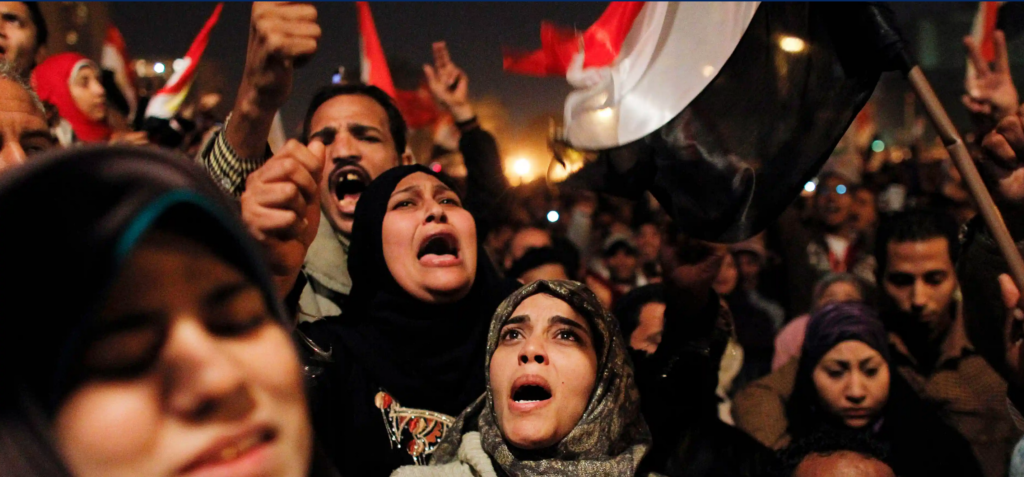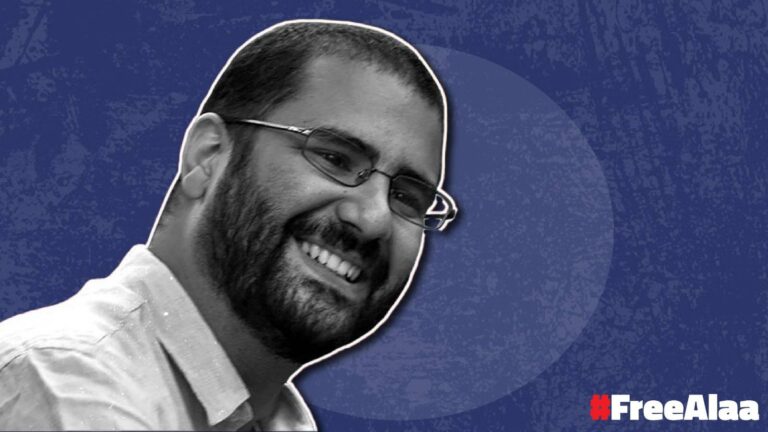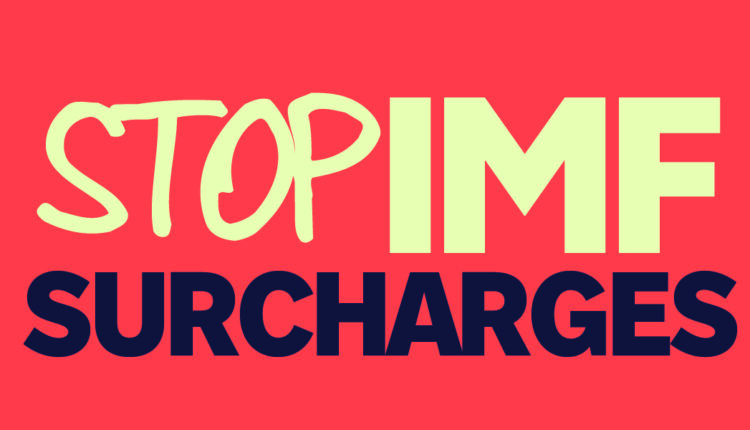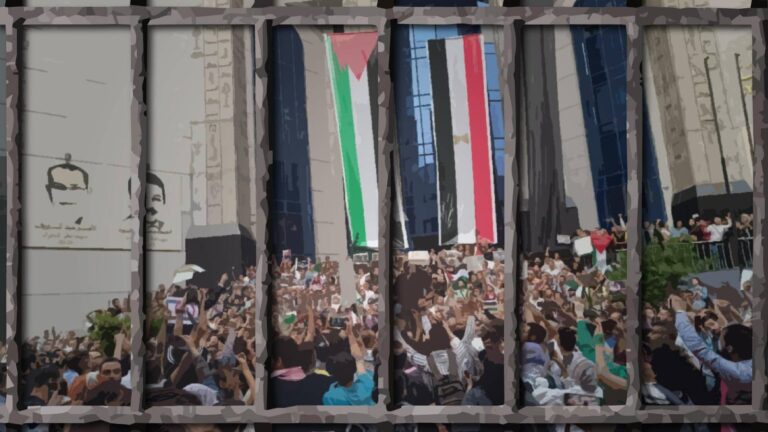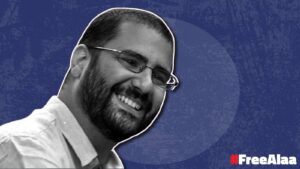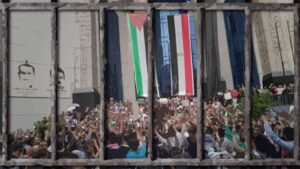Ten years have passed since, inspired by the toppling of the regime in Tunisia, thousands of protesters took the streets of Cairo demanding the end of President Hosni Mubarak’s 30-year rule. Fast-forward to today, the military has strengthened its grip on the country to such extent that the political and public spaces are completely closed. In a total disregard for the rule of law, security forces led by the military continue to brutalise civilians and to carry out serious human rights abuses.
Over the past ten years under Sisi, mass torture and arbitrary detention, were escalated to an unprecedented level. In a recent resolution voted by its 705 members, the European Parliament alerts that “the human rights situation in Egypt has continued to deteriorate as authorities intensify their crackdown on civil society, human rights defenders, health workers, journalists, opposition members, academics and lawyers, and continue to brutally and systematically repress any form of dissent, thereby undermining core freedoms, notably the freedoms of expression, both online and offline, and of association and assembly, political pluralism, the right to participation in public affairs and the rule of law ».
The social unrest which initiated and fueled protests ten years ago has not gone away. Living standards continue to decline, there is an ever more unaccountable elite, and a rapidly growing youth with little access to opportunity, and even less redress for grievances. The spontaneous movements of social revolt that arose throughout the country in September 2019 and 2020, calling for Abdel Fattah el-Sisi to be removed from power show that discontent continues to swell. Corruption and economic struggles push people to abandon rational calculations and to spill out into the streets. What has changed from 2011 however, is that Sisi’s regime has learned that the threat of another revolt is so potent that not even the slightest opening can be allowed.
The regime’s crackdown on independent voices pursues the goal of suffocating any free media ecosystem or intellectual space, perceived as a threat to the regime. The systematic repression of civil and political groups over the past 8 years has all but completely closed the public space, leaving no room for political discourse. This makes it increasingly difficult for the Egyptian civil society to express its dissatisfaction and anger towards the policies of the regime.
The Egyptian Human Rights Forum works towards an outline for political reforms from a human right’s perspective. Among other immediate concerns, the Egyptian Human Rights Forum is particularly appalled by the situation of detainees and prisoners across Egypt, further exacerbated during the current health emergency. This system subjects detainees and prisoners to heightened risks. Political prisoners detained for peaceful activities should be immediately released, and those jailed after unfair trial procedures or without trial should be tried or re-tried in proceedings that meet Egypt’s international human rights obligations.
The Egyptian Human Rights Forum calls on the Egyptian Authorities to:
- End the continuing and intensifying crackdown on fundamental rights and on human rights defenders, lawyers, protesters, journalists, bloggers, trade unionists, students, children, women’s rights and gender equality activists, LGBTI people, political opponents, including their family members, civil society organisations and minorities, solely in response to their exercise of their fundamental freedoms or their expression of dissent ;
- Immediately and unconditionally release all those arbitrarily detained and sentenced for carrying out their legitimate and peaceful human rights work;
- Ensure that the treatment of any detainee adheres to the conditions set out in the ‘Body of Principles for the Protection of All Persons under Any Form of Detention or Imprisonment’, adopted by the UN General Assembly in its Resolution 43/173 of 9 December 1988;
- To urgently decongest places of detention and provide unrestricted access to all Egyptian prisons for any independent organisation to monitor the conditions of detention;
- To declare a moratorium on the death penalty with a view to abolishing it and to take all steps to ensure strict adherence to due process guarantees and all possible safeguards to ensure a fair trial;

